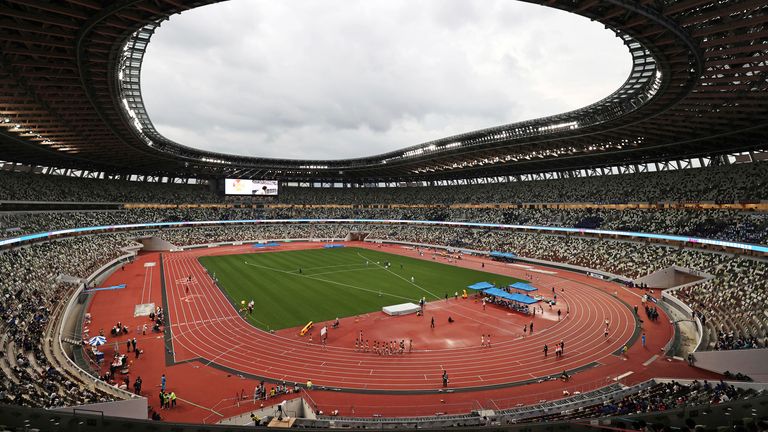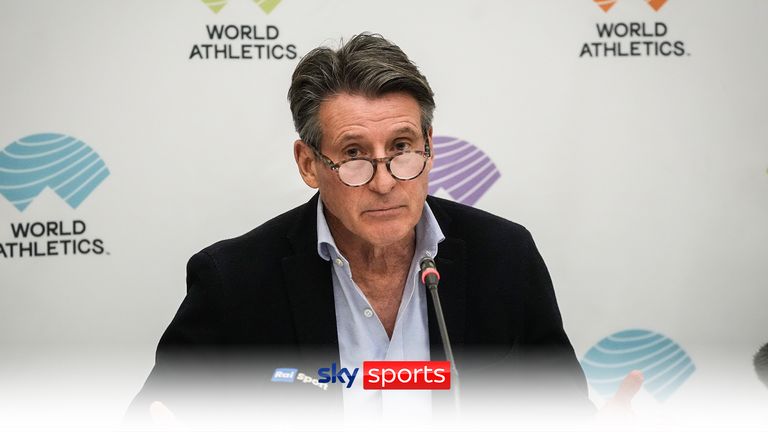World Athletics excludes transgender women from female competition, Lord Coe confirms
Lord Coe: "The majority of those consulted stated transgender athletes should not be competing in the female category"; The council also voted to cut the maximum amount of plasma testosterone for athletes with Differences in Sex Development (DSD) in half
Last Updated: 24/03/23 5:44pm
World Athletics has confirmed it will exclude male-to-female transgender athletes who have gone through male puberty from female competition.
World Athletics president Lord Coe said: "We have also taken decisive action to protect the female category in our sport, and to do so by restricting the participation of transgender and DSD athletes.
"The decision has been taken in consultation with a number of stakeholders including 40 member federations, our athletes, our coaches and through the athletes commission, as well as a range of other community groups, including trans groups, UN experts, the IOC and Para-athletics.
"The majority of those consulted stated that transgender athletes should not be competing in the female category.
"Many believe there is insufficient evidence that trans-women do not retain advantage over biological women, and want more evidence that any physical advantages have been ameliorated before they are willing to consider an option for inclusion into the female category."

The council also voted to cut the maximum amount of plasma testosterone for athletes with Differences in Sex Development (DSD) in half, to 2.5 nanomoles per litre from five.
The tighter rules will impact DSD athletes such as two-times Olympic 800m champion Caster Semenya, Christine Mboma, the 2020 Olympic silver medallist in the 200m, and Francine Niyonsaba, who finished runner-up to Semenya in the 800m at the 2016 Olympics.
"We're not saying no forever," Coe said, adding that World Athletics would form a task force to study the issue of trans inclusion that would be chaired by a transgender athlete.

How have athletes reacted?
Canadian cyclist Kristen Worley, a transitioned athlete who has legally challenged the gender policies of the International Olympic Committee (IOC), said the World Athletics (WA) decision was "disheartening and disappointing".
"What's happening is the most vulnerable are being excluded from sport more for political reasons and not based on science and research," Worley told Reuters in an interview.
"This has effects not just at the international levels but consequently over communities across the globe including communities in the United States."
A number of elite women in track and field welcomed the WA decision, including British runner and Olympian Emily Diamond who tweeted "thank you for following the science".
"A big step for fairness and protecting the female category hopefully this will be the rule across all levels now, not just elite ranking events," wrote Diamond, who won a 400 metres relay bronze at the 2016 Rio Olympics.
Olympian and marathon runner Mara Yamauchi tweeted: "Good news! Odd to celebrate something which is common sense."
What has happened previously?
Swimming's world governing body World Aquatics voted last June to bar transgender women from elite competition if they had experienced any part of male puberty. A scientific panel had found that even after reducing their testosterone levels through medication, transgender women still had a significant advantage.
The vote passed with 71 per cent of the national federations in favour.
WA regulations around DSD previously required women competing in events between 400m and a mile to maintain testosterone levels below five nanomoles per litre.
For the 2020 Olympics, South Africa's Semenya and Burundi's Niyonsaba were both barred from the 800m before turning their attention to the 5,000m.
Semenya failed to qualify for the Games while Niyonsaba made the final before being disqualified for a lane violation.
Namibia's Mboma, prevented from running the 400m, switched to the 200m and won silver.
DSD athletes have male testes but do not produce enough of the hormone dihydrotestosterone (DHT) that is necessary for the formation of male external genitalia.




